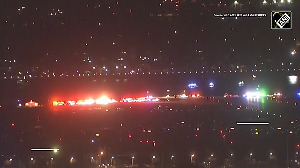 The floods, which claimed more than 1,600 lives so far, continued to unleash untold miseries and destruction all around Pakistan. Besides, at least left 2 million people have been left homeless.
The floods, which claimed more than 1,600 lives so far, continued to unleash untold miseries and destruction all around Pakistan. Besides, at least left 2 million people have been left homeless.
More homes and crops are likely to be swept away with heavy rain being forecast to lash in the country within the next 48 hours. The United Nations has declared the devastation of the floods more severe than the 2004 tsunami and the 2010 Haiti earthquake.
The UN says at least 13. 8 million people have been affected by the flooding. In Punjab the numbers of the victims are 8 million, in Khyber Pakhtoonkhwa (KP) 4.7 million and the rest in Sindh and Baluchistan. The floods have also affected areas in Pakistan-occupied Kashmir.
After playing havoc in Khyber Pakhtoonkhwa, the floodwaters rushed to northwest of Punjab and now making its way to southern Sindh along a trail more than 1,000 km. Since the last two weeks, Dir, Chitral and Bajuar areas in KP have been cut off from the rest of the country.
The Swat region was hit by the worst flood and a severe scarcity of foodstuff.
People are complaining about poor aid activities of the government. But government officials say poor weather prevents them from conducting relief operations. On Tuesday, when the rain halted for a while, the Pakistan Army resumed its helicopter services, apart from delivering food material, they took the stranded people to safer places.
According to Inter-Services Public Relations (ISPR), 23 helicopters took part in the relief work in Khyber Pakhtoonkhwa province; 11 helicopters offered their services in Swat, Kalaam, Bahrain and Madyan while the 12 others rescued the stranded people and took food for people in Dir, Chakdara and Dera Ismail Khan.
"In Muzaffargarh, the situation turned almost chaotic," said a native Ali Ahmed. "We were relaxed that our area is safe, but the voice of loudspeakers was almost killing sound for us when people were warned about flood danger. We hurriedly started moving to higher places and other towns."
Punjab Chief Minister Shahbaz Sharif sought the help of more foreign aid workers.
In Sindh, the flood waters are fast moving towards Sukkur barrage. In upper Sindh, some two million people have already left their homes for safer places. Among the areas under threat from Sukkur barrage are Mirpur Khas, Khairpur, Nawabshah, Sanghar, Tando Alhiyar, Omar Kot and Thar Parkar.
The flood has caused big blow to the economy of the country, affecting crops, mines, power stations, gas reservoirs and other communication systems in the area.
According to the International Monetary Fund, the donors and investors are deeply concerned over the flood's catastrophic impact on the country.
The IMF's spokesperson said, "The floods are likely to cause major harm to the economy in terms of loss of output and budgetary consequences; in these circumstances, support from the international community will be critical."
Image: Flood victims carry their belongings while walking through a makeshift bridge in a village in Charsada in Pakistan's northwest Khyber-Pakhtunkhwa Province | Photograph: Reuters








 © 2025
© 2025